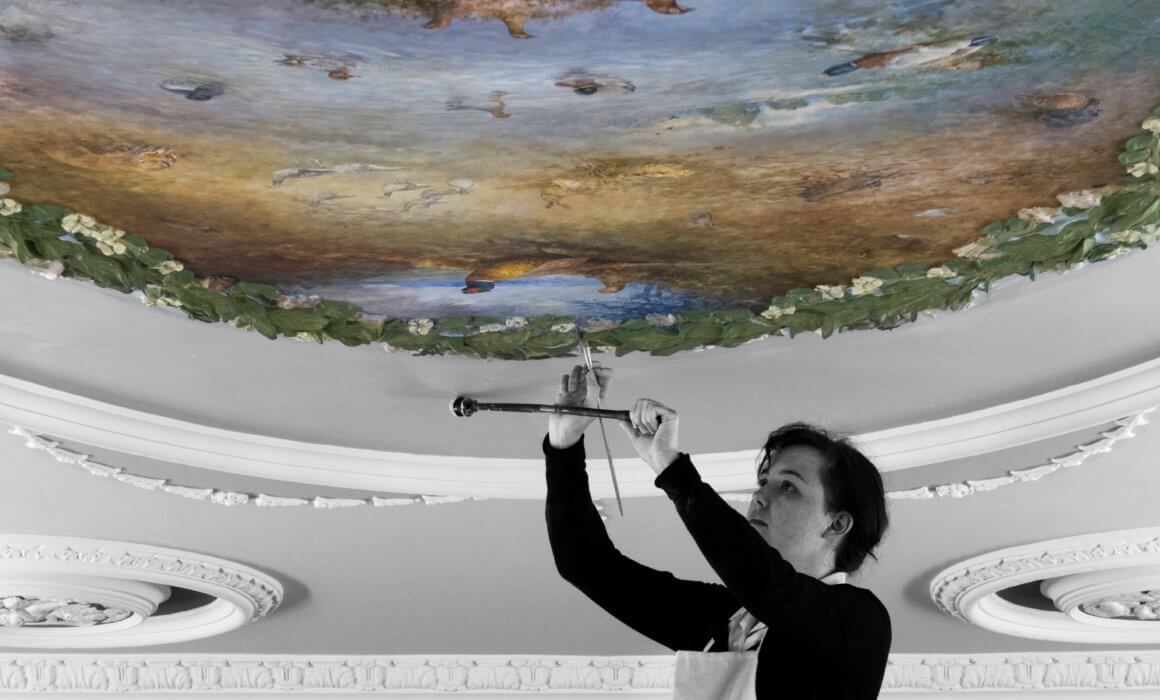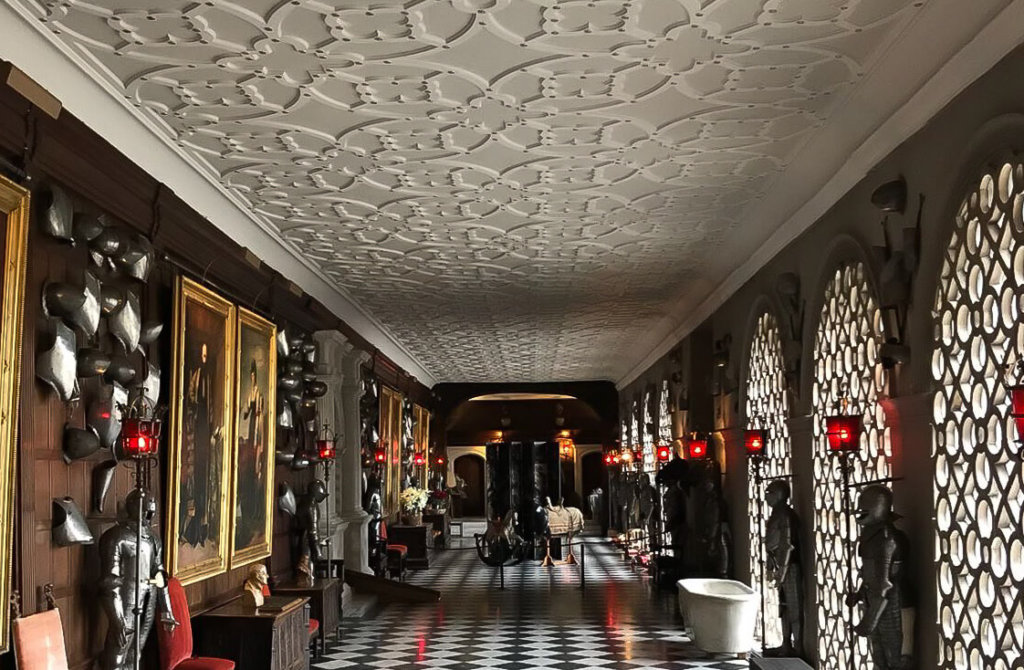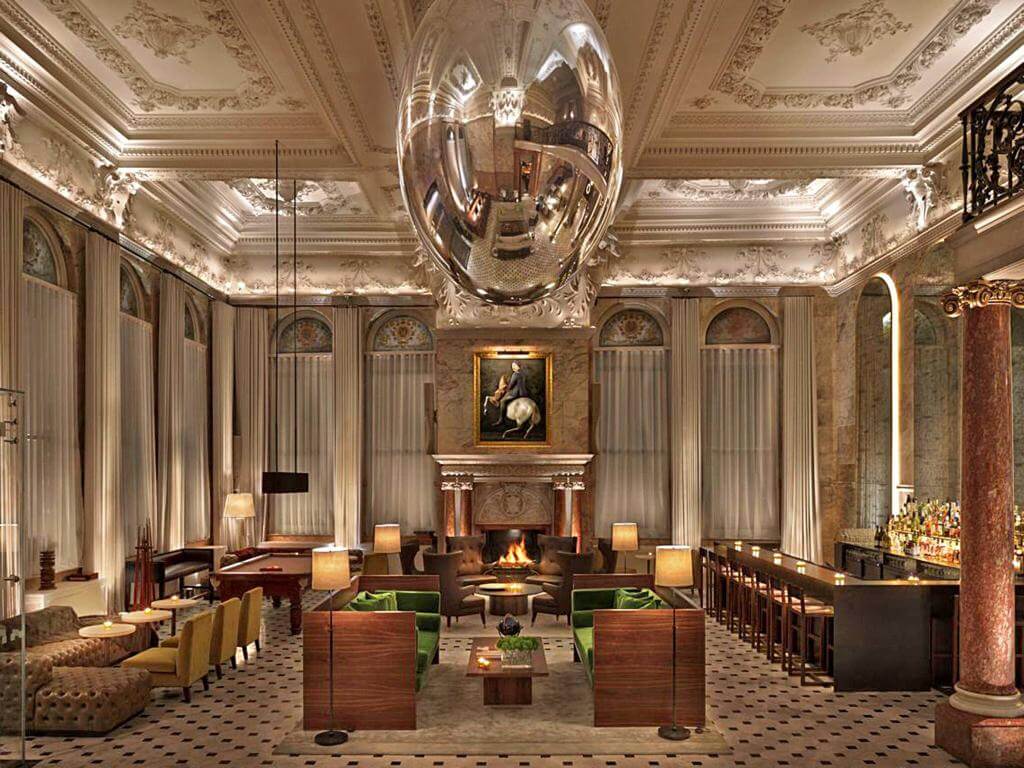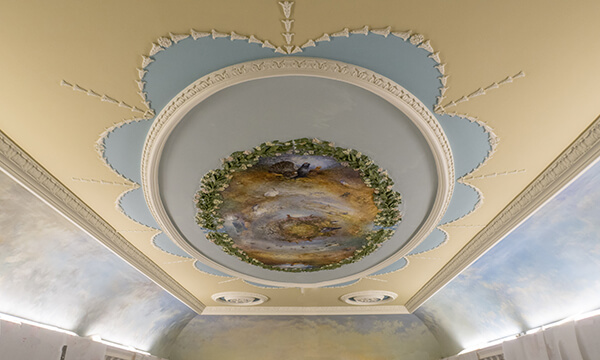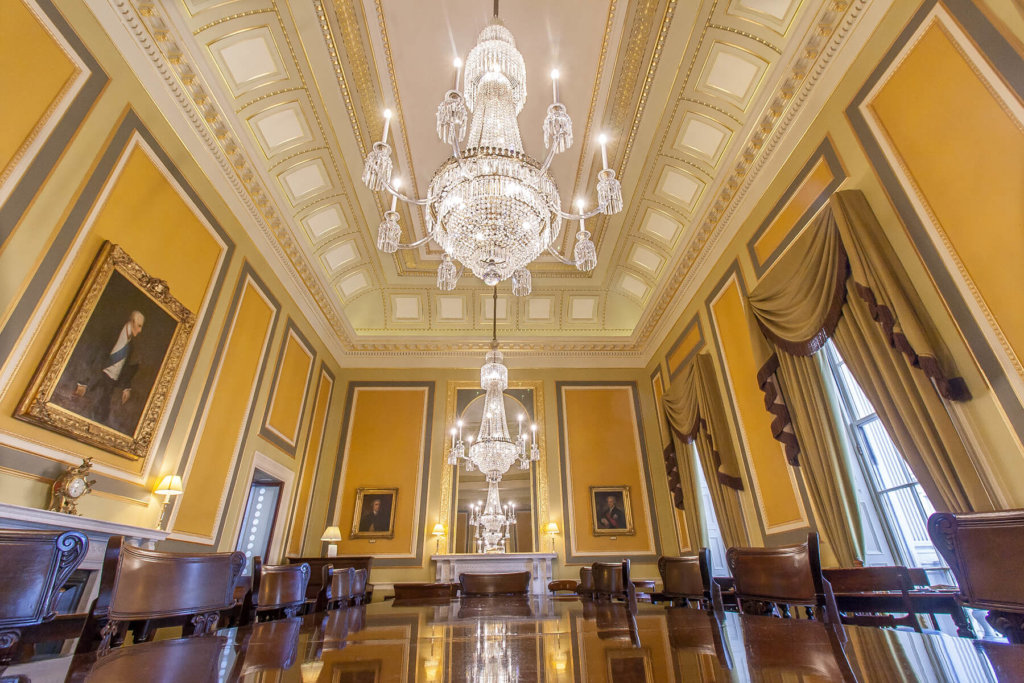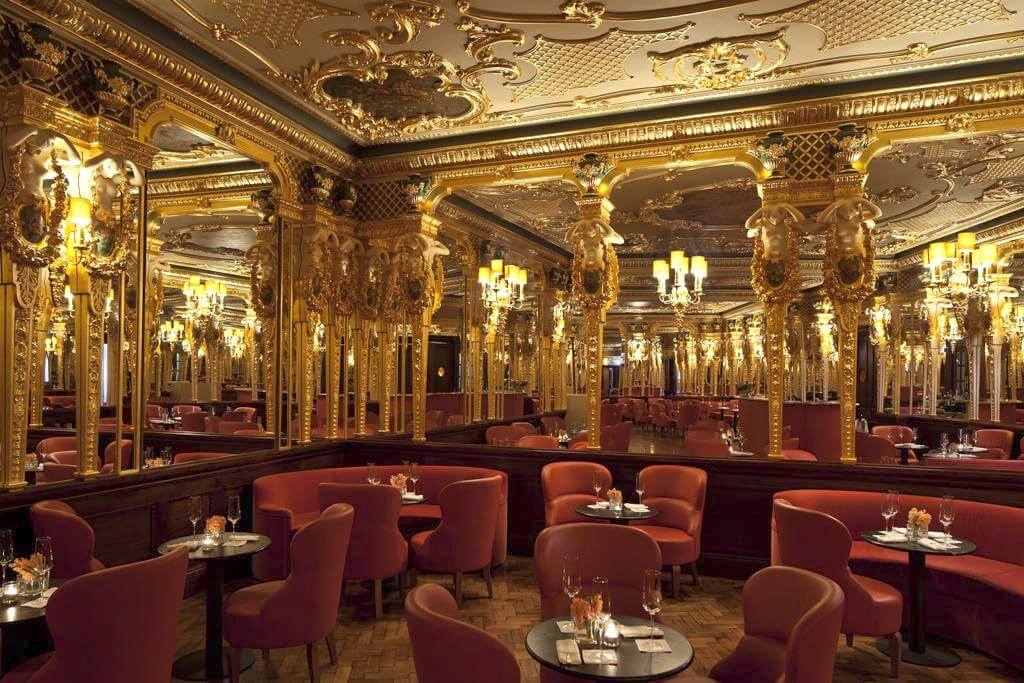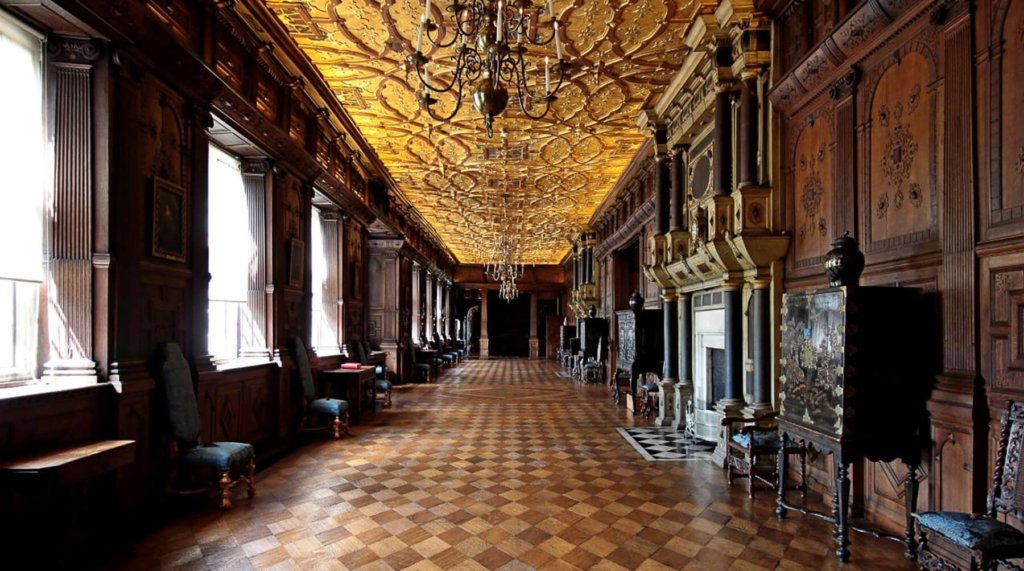Getting to Know You: Cathy Britain
Continuing our series of interviews getting to know our staff, this time we talk to one of Britain & Co.’s co-owners and Directors – Cathy Britain, exploring what drew her to the world of heritage decoration and conservation and what it’s like to be a female business owner in a male dominated industry.
Cathy, tell us what drew you to the field of decoration and conservation?
My Mum is an artist so I was raised in a very creative environment. I did quite a lot of clay and plaster work with her when I was younger and found art to be one of the more stimulating subjects both mentally and physically. When I was looking at going to University, my Mum tried to talk me out of studying art, given how limiting an art degree can potentially be towards your career but I went ahead and pursued it anyway.
After I obtained my degree, I began working as an artist and looked into working within heritage buildings as a means of earning money whilst using my artistic skills. I’d always had an interest in the history of architecture and art and architecture and the prospect of working to conserve or repair someone else’s craftsmanship excited me, so the field really called to me.
What was the first project you worked on?
I was lucky to be able to work on a project in the King’s Library at the British Museum, undertaking plaster repairs and working on some scagliola. It was a fairly high profile project for my first one!
How did Britain & Co. come to be?
Early on in my career, I worked for a few different companies, each of which had their own distinct ways of operating. Working on site as a freelancer and then moving into managerial roles, before eventually working as a Director, I had a good idea about what efficiencies could be made within a company to improve the service for the customer and so I wanted to create a company that took all the best practice I learnt from my previous roles, whilst also making those additional efficiencies.
As my husband is also in the field, it was an obvious choice to set up a family business alongside him – particularly as our skill set complements each other’s so well – his in specialist decoration and mine in conservation.
Have you found it challenging being female in a male-dominated industry?
In my experience, it is still fairly unusual to have a female onsite during projects and over the course of my first few projects twenty years ago, the rest of the team seemed quite surprised to see me – the first time I went to site, someone was walking down the stairs, saw me and stumbled down the rest of the flight!
Once they got used to me being on site though, several of the other guys mentioned that they were happier when there was a woman on site as the atmosphere was usually a little more respectful.
The challenges I’ve experienced have been different as I’ve progressed in my career though and now, it’s usually during networking events that Chris and I attend where people sometimes initially mistake me for ‘just his wife’ or his Secretary, rather than co-owner of the business and well-qualified in the trade! Many husband and wife led businesses in the industry are split with the husband having a trade background and the wife taking care of the office and finances, something that is definitely not the case with Britain & Co.
In conservation however, there are far more women than men and so generally, the site environment is significantly different on projects of this nature.
Over time, I’ve definitely seen things shift and it’s becoming far more commonplace to see women working on site. I’m sure things will continue to change as time goes by but as a company, we’re very clear that we look at the skill of the individual when hiring and hold all of our employees and sub-contractors to the same standard, and give them the same opportunities.
You mentioned that you started Britain & Co. as you saw opportunities to make efficiency savings – what did you mean?
In my previous roles, there has sometimes been quite a lot of competition within the management team in terms of sales. I may have developed a relationship with a client in the past and completed a number of projects for them and then they call whilst I’m not there and suddenly, another manager is now working on the project that’s been rung through. Because of this, it can sometimes feel less like a unified company and more like a number of self-employed Project Manager’s working under the company name – especially when it cam to division of labour with all of the managers clamouring for the best workers.
Whilst this meant that some customers got an amazing service, it meant that others may not have, and that the staff weren’t consistently given the opportunity to develop.
Starting at Britain & Co., I wanted to ensure that we were able to foster and develop a really strong team of the some of the best individuals in the industry, teaching and learning from one another, and making sure that all of our projects were treated with the same degree of urgency and importance. This would then go on to strengthen our relationships with our clients which in turn, gives further opportunities for projects going forward.
Additionally, previous companies I’ve worked for have used quite archaic monitoring systems to review their situation which meant that you couldn’t always get a true snapshot of what was happening without putting in a few days work. When we started Britain & Co., we put in a lot of investment into our management processes to make sure we were never in that position and would be able to get these snapshots quickly and easily.
“I wanted to ensure that we are able to foster and develop a really strong team of some of the best individuals in the industry”
When Britain & Co. started out, what was your mission?
We had several aims when starting the business:
- To produce high quality work for all of our clients.
- To enable the cross pollination of skills and experience for across all of our team members and across disciplines.
- To create a smaller company than some of our competitors, making sure to never lose the personable approach.
- To create something that was ours, and not have to work as a ‘cog’ in a larger machine.
When we started, we expected to remain a lot smaller for a much longer period of time, especially given how new the business was within the field. In doing so though, we neglected the fact that both Chris and I know our stuff and very quickly, we were providing advice, quoting for and winning projects at some incredibly prestigious sites including Hatfield House, the Traveller’s Club, Kensington Palace and The Royal Academy.
What sets Britain & Co. aside from other companies in the industry?
We’re fairly unusual in that both of the Directors have experience in different areas of the trade, Chris in specialist decoration and myself in conservation. This means that when we look at a new project, we are working in a multidisciplinary way from the very outset, considering conservation factors in specialist decoration projects and looking at what decorative techniques can be used to support conservation projects.
Usually, this means we give a lot of advice on projects at the initial visit, and many of the projects that we have been commissioned to undertake have come as a result of the consultative approach we’ve taken early on.
Also, Britain & Co. is a true family business and, as is the case with many family-run businesses, is more stable as our livelihood is tied directly in with the business. Because of this, we’ve taken a much more measured approach to our growth, ensuring that we do so in a way that is sustainable and beneficial for both our clients and the business overall.
“We work in a multidisciplinary way from the outset, looking at factors affecting both conservation and specialist decoration at the same time”
What would you say has helped to ensure that Britain & Co. remains successful?
Our approach to client relationships has meant that we’ve fostered some close ties with a number of companies that have led to some extremely prestigious projects. It has boosted our confidence massively to be involved with so many high-profile projects and clients.
This has meant that the business has grown at a much faster rate than we initially expected and it has been challenging to have to rein this in, whilst still promoting steady growth. Even so, we very quickly turned over our first lifetime £1,000,000 and this felt like a real achievement, especially having started the business from scratch what seems like only a short while before.
Of course, there have been a number of challenges over the course of the years, the most obvious of which has been responding to the recent COVID-19 pandemic and ensuring that our staff are kept as safe as possible, whilst also making sure that the business continues to function and our clients continue to receive a high standard of service. The pandemic really affected us initially, with all of our site-based operations closing for an initial three weeks whilst safety measures could be implemented. Going forwards, we’re also mindful that there are going to be potential delays on all of our secured projects as any closures will obviously have affected other trades, having a knock on effect to the duration of the project overall.
What has been your favourite project you’ve been involved with so far in your career?
For me personally, having the opportunity to work at the Café Royal was incredibly rewarding and the Pompadour Suite is one of my favourite interiors. I have also been involved in the redecoration of many of the gilded interiors of Lancaster House which was another project I’m very proud of. Both involved an incredible amount of team work from the two different arms of both conservation and specialist decoration.
With Britain & Co. however, my favourite project was working on the Long Gallery at Hatfield House which was very technically challenging and exciting to be working on an amazing interior in one of the most historic houses in the country.
What is your secret talent?
I’m fairly good at circus skills, juggling in particular.
What is one thing that people don’t know about you?
I was in a music video for a Japanese rock band when I was younger!
Baby I Love You – Quruli

